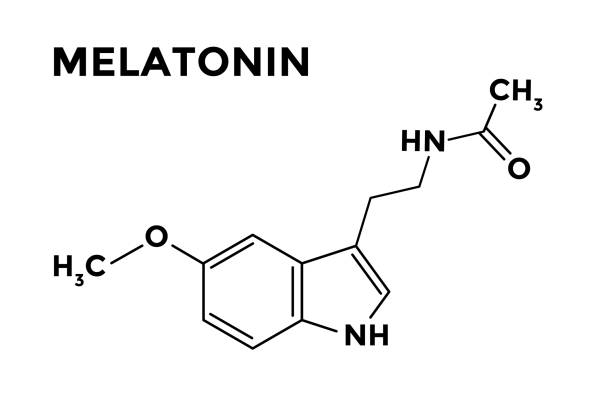Melatonin Market Size Growth Rate by Application 2021 Analysis, Share, Manufacturers, Growth Factor and Forecast to 2020-2027
Market Overview:
The global Melatonin Market is estimated to be valued at US$ 800 Mn in 2022 and is expected to exhibit a CAGR of 7.2% over the forecast period (2020-2027). Melatonin is a hormone produced by the pineal gland in the brain that regulates sleep-wake cycles. The market for melatonin products is driven by the increasing prevalence of sleep disorders and the growing awareness about the importance of healthy sleep habits. Melatonin supplements are widely used to treat insomnia, jet lag, and sleep disorders associated with shift work. These products offer advantages such as reducing the time taken to fall asleep, improving sleep quality, and minimizing daytime fatigue. The demand for melatonin products is expected to grow significantly as more individuals seek natural remedies for sleep-related issues.
Market Key Trends:
One key trend in the melatonin market is the rising demand for natural and plant-based melatonin supplements. Consumers are increasingly inclined towards organic and natural alternatives to synthetic drugs. Plant-based melatonin supplements, derived from sources such as tart cherries, walnuts, and oats, are gaining popularity due to their perceived health benefits and minimal side effects. These natural supplements are considered safe for long-term use and come with additional nutritional benefits. The trend towards natural and plant-based melatonin products is expected to drive the growth of the market during the forecast period.
Segment Analysis:
The Melatonin Market can be segmented into two main types: pharmaceutical grade and dietary supplements. The pharmaceutical grade segment dominates the market and is expected to continue its dominance over the forecast period. This can be attributed to the increasing number of sleep disorders and the growing demand for prescription-based melatonin products. Pharmaceutical grade melatonin is used as a treatment for various sleep disorders, including insomnia and jet lag. Additionally, the segment is favored by healthcare professionals due to its consistent formulation and standardized dosage levels, ensuring reliable treatment outcomes. Furthermore, the stringent regulations associated with the production and distribution of pharmaceutical grade melatonin further contribute to its domination in the market.
Key Takeaways:
The global Melatonin Market Growth is expected to witness high growth, exhibiting a CAGR of 7.2% over the forecast period of 2020-2027. The increasing prevalence of sleep disorders, such as insomnia, coupled with the rising awareness about the importance of a good night's sleep, is driving the demand for melatonin products. Moreover, the growing adoption of melatonin as a dietary supplement for general health and well-being is further fueling market growth. Additionally, the market is witnessing a surge in online sales channels and expansion activities by key players, leading to increased accessibility and availability of melatonin products.
In terms of regional analysis, North America is the fastest-growing and dominating region in the melatonin market. This can be attributed to the high incidence of sleep disorders, well-established healthcare infrastructure, and a high level of awareness about sleep-related issues in the region. Furthermore, the increasing geriatric population and the presence of key market players in the region contribute to its dominance. Europe also holds a significant share in the market due to the rising number of shift workers and the increasing trend of self-medication for sleep disorders.
Key players operating in the melatonin market include Natrol Inc., Neurim Pharmaceuticals Ltd., Pulse Pharmaceuticals Pvt. Ltd., Flynn Pharma Ltd., Fidia Farmaceutici S.P.A., Aspen Pharmacare Holdings Ltd., Schiff Nutrition International Inc., Solal Technologies (Pty) Ltd., Rexall Sundown, Inc., and Bebida Beverage Co. These key players focus on product innovation, strategic collaborations, and mergers and acquisitions to maintain their market position and gain a competitive edge. Additionally, they strive to expand their global presence through geographical expansions and distribution agreements.
Overall, the melatonin market is poised for significant growth, driven by increasing sleep disorders, the rising trend of self-medication, and the expanding geriatric population. The dominance of the pharmaceutical grade segment and the strong presence of key players in North America and Europe further contribute to market growth.




Comments
Post a Comment